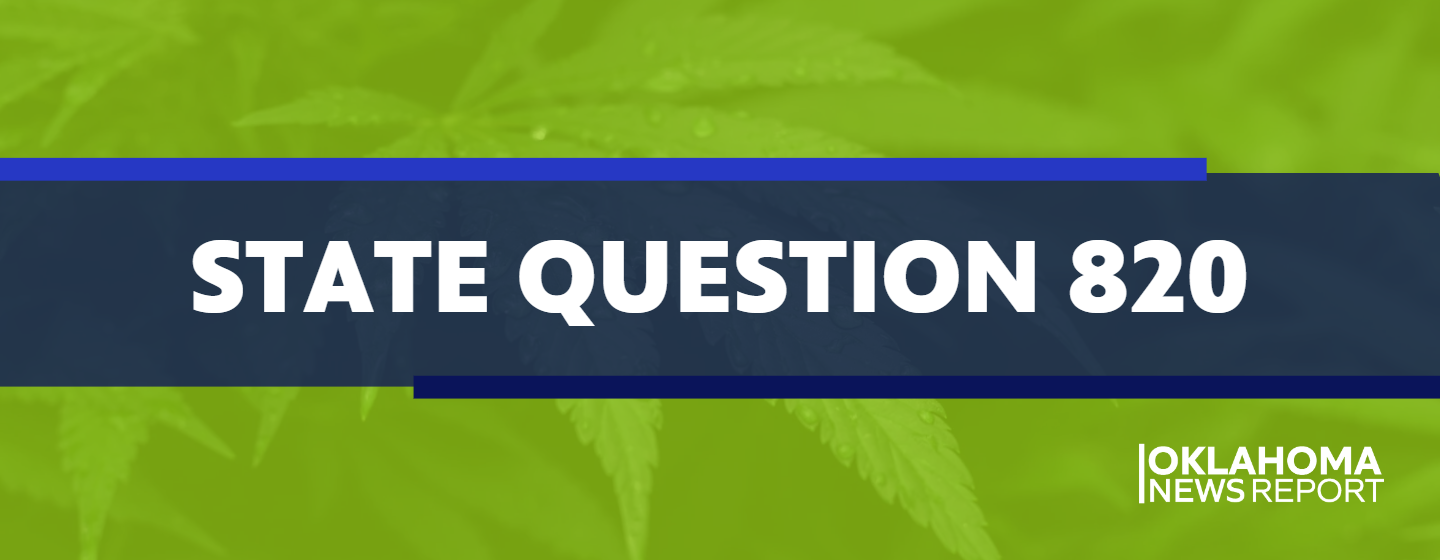Voters will decide on Tuesday, March 7th, whether to pass or reject State Question 820, which will legalize the recreational use of marijuana. We begin with a look at 820 and what it will do, who supports it, and who opposes it becoming Oklahoma law to legalize, regulate, and tax recreational marijuana.
If approved, the new law would open up dispensaries to adults over the age of 21 years old without having to get a medical marijuana card. The current medical marijuana program and the Oklahoma Medical Marijuana Authority will continue to exist even if voters approve recreational marijuana. Campaign Director for Yes on 820 Michelle Tilley says, “Really the only difference we hope we'll be at the point of sale where you'll show either a medical card or just show your regular license for a recreational purchase.
According to the Yes on State Question 820 campaign. The effort isn't just about opening up cannabis sales. It's part criminal justice reform. Tilley continues, “First off, and most importantly, people will not be going to jail anymore for just regular minor marijuana use. That's super important. Obviously, we, we think it's an outdated idea to be using our state resources and the resources of law enforcement to arrest people and put them in jail, which often leaves them with an arrest record that they carry for their whole life.”
Cleveland County District Attorney Greg Mashburn disagrees and says, if State Question 820 is approved, it'll create more criminals. “Certainly the property crimes, the breaking into your house or your car to steal to get money so that they can go then buy their marijuana from whoever -- those crimes will continue to rise and they're not gonna go away because it becomes recreational.”
The prosecutor contends drug use leads to more crime, and currently law enforcement is trying to catch up with the organized crime occurring in the shadow of the state's medical marijuana program. “It causes us to work more because of the violence associated with it. What we see is people robbing their drug dealer for it, robbing other people to get their marijuana. And so unless it's free, I mean, just because it's gonna be recreational. If it were to be recreational doesn't take that away.
Cannabis activist, Chris Moe says State Question 820 would help alleviate issues within the medical program. “One of the main reasons why I support this as a patient is because our program isn't taken seriously. Nobody considers it a medical program, and it's because it's a one size fits all, and I don't believe that fits the state.”
He says, by having two programs issues and patients could be better addressed and served. “It's the only way to fix the program. If we don't pass full access first, all these changes are gonna hurt somebody in one way or another. It's either gonna hurt a business that is used to selling to a broad variety of people, or it's gonna hurt those people who lose access when they finally crack down and find some way of shrinking the card number.”
As of February of this year, Oklahoma has more than 369,000 licensed medical marijuana patients, which is actually down from 382,000 at this point last year.
An adult use program could increase the number of people who use cannabis in Oklahoma. Terri White, the co-chair of the “No On State Question 820” campaign says the proliferation of marijuana could do more harm than good. “If we take that next step to full legalization, we will further increase the access, and that's my big concern, is the additional number of people who will use this product, particularly those that are underage.”
Terri White has been working within the mental health and behavioral health field for more than 20 years. In fact, she was the state's lead witness in the opioid lawsuit against Johnson and Johnson. She points to brain science indicating that younger people are more vulnerable to falling into addiction if cannabis becomes more accessible in Oklahoma.
“The marijuana of today is not like the marijuana of the 1960s or 1970s, where somewhere between five and 10% of the product was THC, the active psychoactive ingredient. Today, Marijuana has been bred to be between 30 and 40% THC content, and it's causing all kinds of brain health problems, particularly in our most vulnerable brains, which are brains that are 25 years old and younger.” White states.
State Question 820 also would generate more tax revenue coming into the state because those without a medical marijuana card, will pay more. “The medical program, you still will be able to keep that 7% tax rate if you have a card. And if you don't have a card, then you'll pay 15% excise tax on your purchase.” Says Tilly. She adds the new tax money would be used for funding schools, healthcare, drug treatment programs, and local governments with some of the money to be used at the legislature's discretion.
In the past fiscal year, Oklahoma collected more than 60 million in excise tax revenue from the sale of medical marijuana. Total state and local tax revenue for last fiscal year came in at 77.7 million dollars. Ultimately, it'll be up to Oklahoma voters on March 7th.





